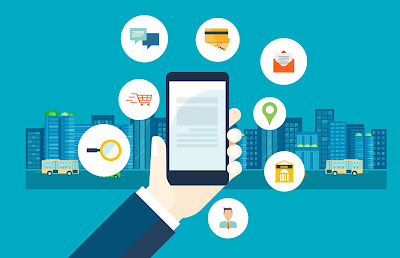3 Things You Must Be Doing If You Allow Employees To Use Their Own Mobile Devices
Many businesses in Saint Paul provide employees with company-owned devices such as tablets and smartphones. But as time goes on and people collect more personal devices, many businesses are letting employees use their own smartphones to save money on equipment purchases and simplify hardware management.
If you’re one of the businesses that see value in this approach, there are certain steps that must be taken to safeguard company data. You need rules. You need guidelines. You need a plan.
You need a mobile device management policy.
What Is Mobile Device Management?
The term mobile device management (MDM) broadly refers to the rules, guidelines, and policies dictating the use of mobile devices for work-related activities. With the rising threat of security breaches and cyber attacks, smartphones and tablets represent one of the most vulnerable kinks in your network’s armor.
Many businesses store sensitive data in apps that can be accessed remotely. With a fleet of company-owned devices, businesses can easily protect this information by installing safety features en masse. But with a few dozen employees using a dozens of different devices, applying a uniform security strategy becomes much harder.
Among other things, a proper MDM policy should govern how mobile devices (personal or company-provided) access privileged information. This way, you can focus on tightening security from a centralized console rather than configuring individual devices. With the right IT support, you can create an MDM plan that fine-tunes employee accounts based on what type of device or network they use to access company data.
For example, you could ensure that certain materials are accessible only through a mobile application that won’t allow a connection if the user is on a public WiFi network. This helps you establish information security without the need to mess with an employee’s personal device.
If you’re going to let employees bring their own devices (BYOD), there are several things you must do to ensure security and regulatory compliance. Here are three.
Partition Personal Data
With MDM technology and the right IT support, you can cordon off business data and keep it separate from personal data. This makes it nearly impossible for employees to accidentally share company information and assures them their boss can’t see their texts, emails and social media messages.
Remote Access Management
In the event of theft or loss of the device, being able to access the device remotely to recover or remove sensitive information is vital. Most modern smartphones and tablets have this feature available, though few take the time to configure it.
Ideally, you’ll want to be able to access the device remotely and be able to either lock or erase the contents if recovering the physical device is not possible. In extreme cases, MDM solutions will allow you to wipe several phones simultaneously.
Application Management
In addition to enforcing strong password, malware, and antivirus measures, steps should be taken to limit which applications can be downloaded and installed on devices that contain company materials. If you allow employees to connect to the company WiFi, security measures should be taken to block certain applications from accessing the network.
Google and Apple discover malware hiding in their app stores every day. If you don’t block which programs can connect to the network that stores company data, any one of your employees could walk right in with a phone that gives hackers a direct connection to your business’s most private information.
MDM lets you “whitelist” certain types of connections, which means everything is blocked except the apps necessary for work. By disallowing everything except email and productivity apps, you significantly reduce the avenues available to hackers who want to exploit your company.
Ready to Safeguard Your Network?
Vodigy Technologies provides enterprise-level network security solutions, including mobile device management. Our robust solutions can enable your company to secure, monitor, and access sensitive business data even if the device is employee-owned.
To find out more about mobile device management, contact us today and let us take the IT burden off your shoulders.




Comments